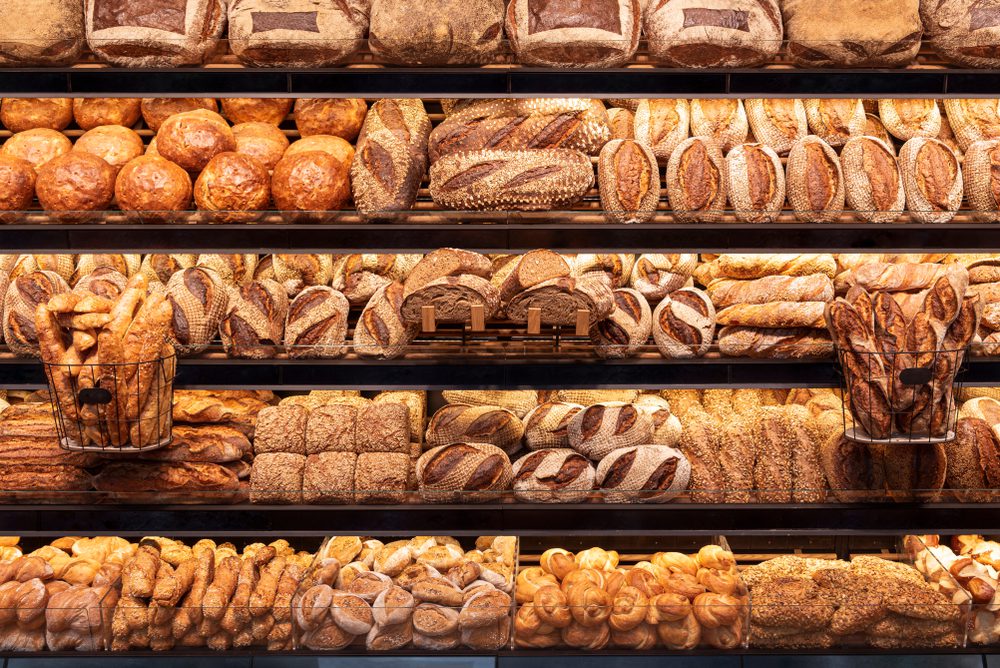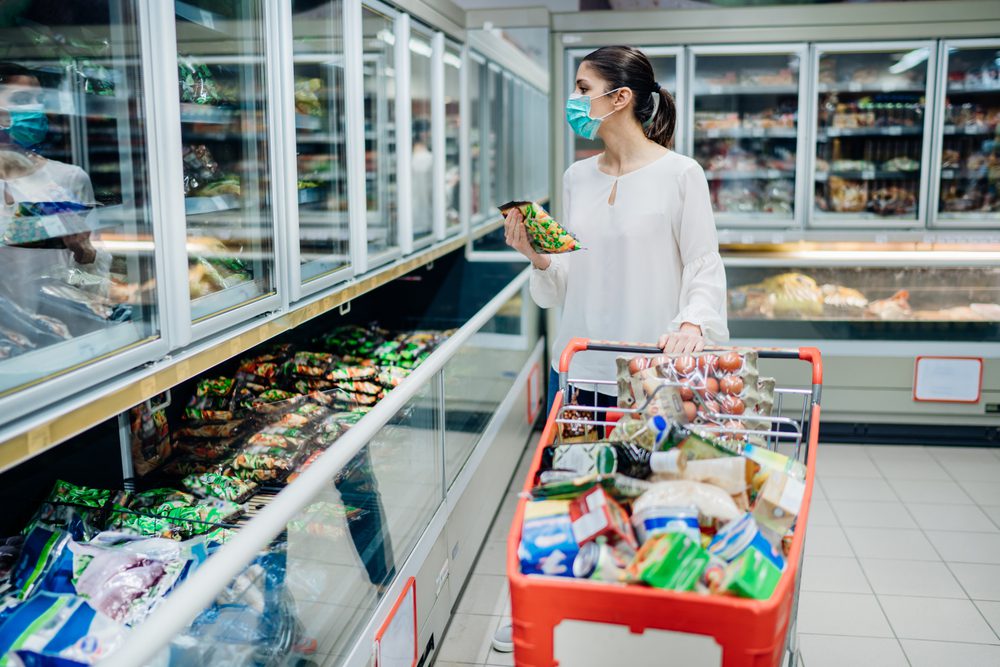Stop Buying These 11 Things in Bulk!
I know, I know. If you want to save more money, the first instinct is to buy in bulk. It’s what we’ve been talking about for many years, and you’re absolutely right. But there are rules to that, either. You are the only one who knows how your household eats and uses all the things you actually buy.
At the end of the day, that means that you have to establish the best bulk purchases you should make. As a rule of thumb, remember one thing: don’t buy more of something if you can’t use it or if it goes bad. Now, let’s get into the details!

Fresh produce
You will soon realize that preparing your meals ahead will completely change the way you shop. For example, if you are planning an entire week’s worth of meals, and you’re preparing everything at once, you will need all the ingredients on hand, naturally.
However, unless you have a large number of family and friends that you need to cook for, buying fresh produce in bulk is rarely that good of an idea. The majority of products won’t even stay fresh past a week if they make it by the end of it anyway.
Some produce goes bad in a matter of days. Of course, there are some exceptions. If you love baking banana bread or throwing bananas in a smoothie and you see a wonderful sale, go ahead and buy them.
But make sure you have enough room to keep them in your freezer. If you have your favorite soup or chili recipe and you bump into a crazy sale on exactly what you’d need for a big batch, stash it in your freezer. You can think of it as a present for the future. Besides, it’s much healthier and cheaper than many other ready-made frozen entrees.
Eggs
As the American Egg Board explained, raw whole eggs in their shells last 3 weeks from the date of purchase if kept in the refrigerator. If you only use eggs every now and then, don’t rush to buy them in bulk.
But if you’re about to bake the cake for the entire neighborhood, the idea of scooping two dozen eggs at once is indeed appealing. Resist the urge to shop just because the price is good. Make sure you find the best out there. Eggs are oftentimes on sale at some dedicated grocery stores and non-bulk general merchandise stores (Target). Your wallet might thank you later.
Cooking oils
Unless you’re a restaurant or you like to deep-fry stuff on a regular basis, you probably shouldn’t rush into buying cooking oils in bulk. All types of oils go bad over time, and you should try to store them in a cool, dark place in airtight containers. In fact, the ones they usually come in are ideal for storage. Storing oils in your fridge could indeed prolong their shelf life, but some could ultimately solidify if exposed to cold temperatures.

Bread and bakery items
Bread and bakery items are our all-time favorites. Whether we’re talking about muffins or unfrosted cakes, they can be frozen very nicely. Freezing coffee cakes and any other items that have a sugary glaze might transform that melting glaze into a sticky mess when you defrost them.
But even if you freeze those items, they will take up a lot of room you’d rather fill with other foods you need. Unless you have immediate plans for all the bread, it’s highly recommended to buy it in smaller amounts and leave the bulk bread aisle alone.
Ground spices
Whether we’re talking about ground or whole, spices don’t go bad. But they could lose their potency over time, which means that they won’t taste the same as you remembered. In fact, you’ll probably have to use more of them to get the ideal flavor. Your results could vary, but as a general rule, whole spices have more flavor, especially compared to ground spices.
Condiments
As a general rule, condiments like mayo and ketchup are pretty shelf-stable. That’s why it makes all the sense in the world to keep them around forever. But that’s not the case. Even if they do last longer in their unopened state, they will eventually go bad. Mayonnaise, for instance, is only safe to eat for two months after opening, according to the USDA.
That’s one of the reasons why barbecue sauce, mustard, ketchup, mayo, and salad dressings are only a good idea for bulk shops if you’re also going to consume them in bulk. One notable exception to this important rule is vinegar. Vinegars are very acidic, and they’re often used to preserve other types of foods, so they can last indefinitely.
Whole grains and nuts
Whole grains, including whole grain flour, and nuts are, as you might know already, high in oils. And just like cooking oils, the oils are those natural parts of foods that usually go rancid faster than you’d like to. Given this, both nuts and nut flours and all your whole grains and whole grain flours should be kept in the freezer.
Anything you can’t freeze or eat before it goes bad
There’s something truly comforting about having a full fridge and pantry. We can all attest to this. However, if you’re only cooking for yourself or maybe two other people, you have to stop and think: How much food do you actually need? Food waste is a huge issue, especially in the United States.
Our capacity and willingness to buy anything and everything in bulk aren’t helping. The only person who can truly assess your household’s eating habits is you. Unless you constantly consume things you’re thinking of buying in bulk, you won’t save much if you end up throwing more than a half away.
Cleaning products that you won’t use within a year
Cleaning products seem like a very good idea when it comes to bulk purchasing, don’t they? However, even bleach has a shelf life, as it usually starts to degrade after six months. Moreover, it becomes 20% less effective after sitting on a shelf for a year. Other cleaning products you might have around your home have different expiration dates.
Sunscreen
Sunscreen formulations have an expiration date, too. Since those are generally set by their manufacturers, you should toss any sunscreen that’s past its prime. As a general rule, sunscreens are formulated to be the most effective in the first three years.
If you slather the stuff on every day, buying in bulk isn’t really such a bad idea. But if you only break it out when you’re spending a day at the beach every now and then, just think twice before buying sunscreen in bulk.
Face cream
We all have our favorites. So if we spot an insanely great deal, scooping them into our baskets is basically a no-brainer, right? Well, as it turns out, it’s a horrible idea. You’ve probably heard all those horror stories about the bacterial colonies lurking in mascara and how we constantly need to change them.
However, if that bulk skincare is too good to be true, you could always buy it and stash the big jar in the back of your fridge.
If you found this article useful, you’ll also want to read this one: 9 Foods You Should ALWAYS Freeze to Save Money











